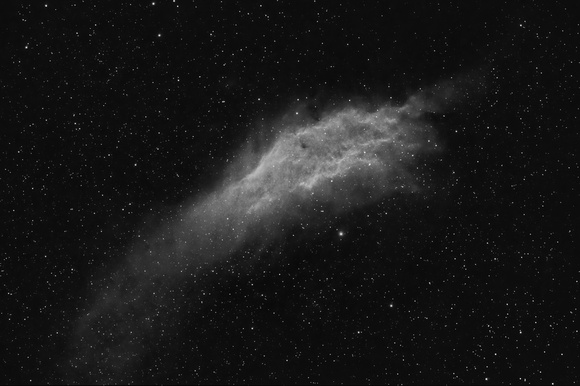Canon 350D Hap Griffin Baader Mod18x600sec at iso 1600
30 Darks/Flats/Bias
Canon 70-200 f/2.8 L at 200mm
Baader 2 inch 7nm H alpha filter
Step Down Rings
Taken during a near full waxing gibbous moon.
Astrophotogallery.org Large/Hard Object October, 2008 Runner-UpNGC 1499, also known as the California Nebula for it's resemblence to the western state, is a pure and classic emission nebula. NGC 1499, like all emission nebulae glows as a result of hydrogen atoms recombining with
long lost electrons, stripped away (
ionized) by energetic starlight. In this case, the star most likely providing the energetic starlight is the bright, hot, Xi Persei seen here below the nebula (not looking so bright here because of most of it's blue light being filtered out by the Ha filter). The radiation from this star is not only causing the glow, but also pushing the gas away causing the scalloped appearance at the mid-portion of the nebula.
The California Nebula is 100 light years long and about 1000 light years distant (the same as the star Xi Persei).
(Thanks to APOD for the corny physics major-type joke)
October 11, 2008


